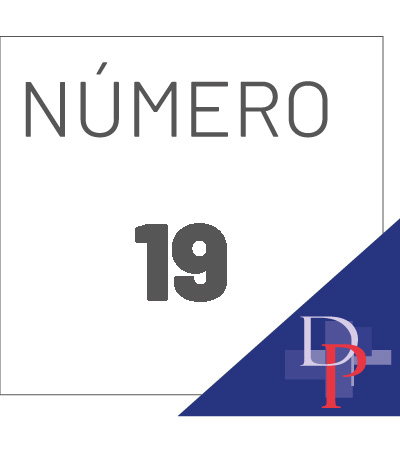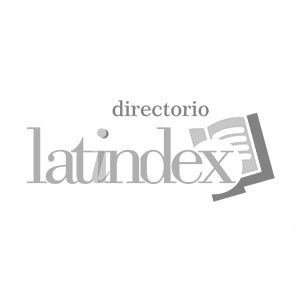Philosophy of Technology: a reflection about Technology and Arbitration
Arbitration is distinguished for being more efficient than other options. It has used technology in a more efficient way than other options. Covid-19 has taken this situation to the next level, demanding readjustment. Especially, a real concern regarding the possibility of compromising due process has been raised. This essay defends that (1) technology allows following arbitration processes virtually; (2) innovation will help to increasingly achieve the ideal of seeking justice, since the cost reduction will imply that more cases can be heard and adjudicated, causing what is currently a luxury (obtaining justice) to spread and penetrate distinct segments of society, which is currently neglected; and (3) the challenges we currently face demand so (e.g. climate change, loss of biodiversity). All it takes is a change of attitude. To adapt.
Article Details
Uso de licencias Creative Commons (CC)
Todos los textos publicados por la Revista de Derecho Privado sin excepción, se distribuyen amparados con la licencia CC BY-NC 4.0 Internacional, que permite a terceros utilizar lo publicado, siempre que mencionen la autoría del trabajo y la primera publicación en esta revista. No se permite utilizar el material con fines comerciales.
Derechos de autoras o autores
De acuerdo con la legislación vigente de derechos de autor la Revista de Derecho Privado reconoce y respeta el derecho moral de las autoras o autores, así como la titularidad del derecho patrimonial, el cual será transferido —de forma no exclusiva— a la Revista para permitir su difusión legal en acceso abierto.
Autoras o autores pueden realizar otros acuerdos contractuales independientes y adicionales para la distribución no exclusiva de la versión del artículo publicado en la Revista de Derecho Privado (por ejemplo, incluirlo en un repositorio institucional o darlo a conocer en otros medios en papel o electrónicos), siempre que se indique clara y explícitamente que el trabajo se publicó por primera vez en la Revista.
Para todo lo anterior, deben remitir la carta de transmisión de derechos patrimoniales de la primera publicación, debidamente requisitada y firmada por las autoras o autores. Este formato debe ser remitido en PDF a través de la plataforma OJS.
Derechos de lectoras o lectores
Con base en los principios de acceso abierto las lectoras o lectores de la revista tienen derecho a la libre lectura, impresión y distribución de los contenidos de la Revista por cualquier medio, de manera inmediata a la publicación en línea de los contenidos. El único requisito para esto es que siempre se indique clara y explícitamente que el trabajo se publicó por primera vez en la Revista de Derecho Privado y se cite de manera correcta la fuente incluyendo el DOI correspondiente.
References
Alarie, Benjamin et al., “Law in The Future”, The University of Toronto Law Journal, Canadá, vol. 66, num. 4, 2016.
Attali, Jacques, Comment nous protéeger des prochaines crises, Francia, Fayard, 2018.
Bostrom, Nick, Superintelligence: Paths, Dangers, Strategies, United Kingdom, Oxford University Press, 2014.
Buchanan, Bruce G. y Headrick, Thomas E., “Some Speculation about Artificial Intelligence and Legal Reasoning”, Stanford Law Review, Estados Unidos, vol. 23, num. 1, 1970.
Cuéllar, Mariano-Florentino, “A Common Law for the Age of Artificial Intelligence: Incremental Adjudication, Institutions, and Relational Non-Arbitrariness”, Columbia Law Review, vol. 119, num. 7, 2019.
Domingos, Pedro, The Master Algorithm: How the Quest for the Ultimate Learning Machine Will Remake Our World, Estados Unidos, Basic Books, 2015.
Ezrachi, Ariel y Stuke, Maurice E., Virtual Competition: The Promise and Perils of the Algorithm-Driven Economy, United States of America, Harvard University Press, 2016.
Figueres, Christiana y Rivett-Carnac, Tom, The Future We Choose: Surviving the Climate Crisis, Estados Unidos de América, Alfred A. Knopf, 2020.
Gehl, Katherine M. y Porter, Michael, The Politics Industry: How Political Innovation can break partisan Gridlock and save our Democracy, Estados Unidos de América, Harvard Business Review Press, 2020.
Goldberg, Steven, “NINE. Artificial Intelligence and the Essence of Humanity”, Culture Clash: Law and Science in America, Estados Unidos de América, New York University Press, 1994.
International Council for Commercial Arbitration, “Does a Right to a Physical Hearing exist in International Arbitration? Investigating the Legal, Conceptual and Practical Implications of a Remote Hearings in International Arbitration”, ICCA Reports, num. 10, 2022, available at: https://cdn.arbitration-icca.org/s3fs-public/document/media_document/Right-to-a-Physical-Hearing-General-Report.pdf.
Kahneman, Daniel et al. Noise. A Flaw in Human Judgment, Estados Unidos, Little, Brown Spark, 2021.
Lee, Linda-Eling et al., “Women on boards: Global trends in gender diversity on corporate boards”, MSCI Research Insights, 2015.
Norberg, Johan, Progress: The Reasons to Look Forward to the Future, Reino Unido, Oneworld Book, 2016.
Organización Internacional del Trabajo, “La mujer en la gestión empresarial: Cobrando impulso en América Latina y el Caribe”, Oficina de Actividades para los Empleadores, Suiza, 2017, available at: https://www.ilo.org/public/spanish/dialogue/actemp/downloads/events/2017/lima_conf/wibm_fullreport_2017_sp.pdf.
Rissland, Edwina L., “Artificial Intelligence and Law: Steppingstones to a Model of Legal Reasoning”, The Yale Law Journal, vol. 99, num. 8, 1990.
Robinson, Mary, Climate Justice, Reino Unido, Bloomsbury Publishing, 2018.
Robson, David, “The «3.5% rule»: How a small minority can change the world,” BBC Future, Reino Unido, 2019, available at: https://www.bbc.com/future/article/20190513-it-only-takes-35-of-people-to-change-the-world.
Schumpeter, Joseph A., Capitalism, Socialism and Democracy, Estados Unidos de América, HarperPerennial, 1950.
Stern, Nicholas, The Economics of Climate Change: The Stern Review, Reino Unido, Cambridge University Press, 2007.
Susskind, Richard E., Online Courts, and the Future of Justice, Estados Unidos, Oxford University Press, 2019.
Tegmark, Max, Life 3.0. Being Human in the Age of Artificial Intelligence, Estados Unidos, Alfred A. Knopf, 2018.
Werner, Charlotte et al., ¿“Moving women to the top: McKinsey global survey results”, McKinsey & Company, 2010, available at: http://www.mckinsey.com/business-functions/organization/our-insights/moving-women-to-the-top-mckinsey-global-survey-results.




















